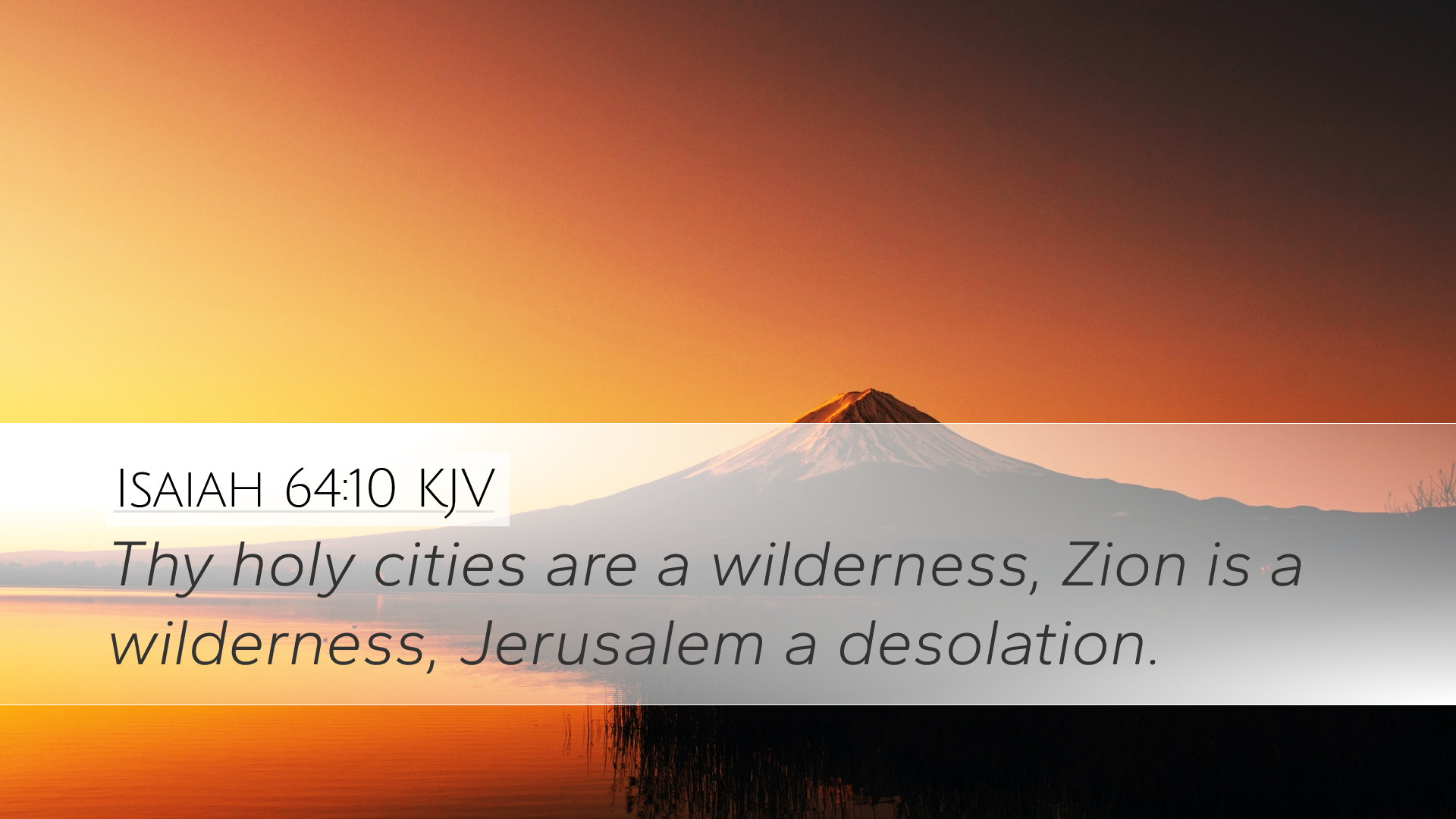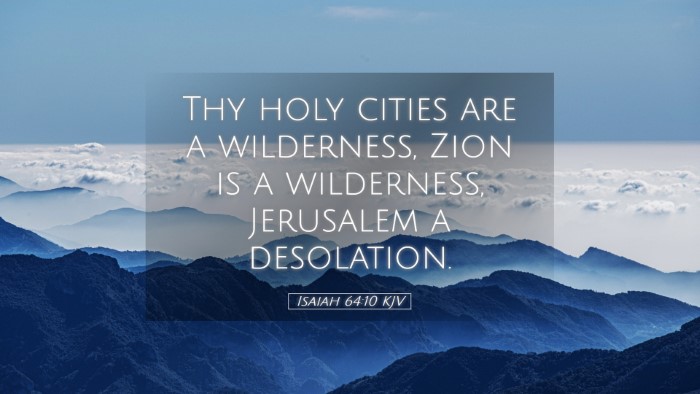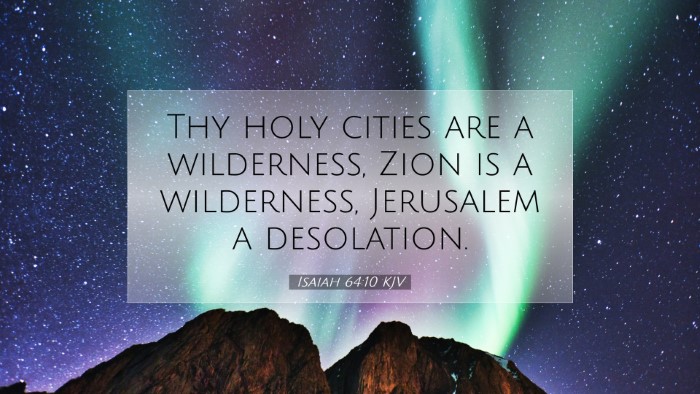Isaiah 64:10 Commentary Summary
Bible Verse: Isaiah 64:10 - "Your holy cities are a wilderness, Zion is a wilderness, Jerusalem a desolation."
Introduction
The passage from Isaiah 64:10 encapsulates a profound lamentation over the state of Jerusalem and the people of Israel. This verse is a part of a prayer that expresses deep anguish and yearning for God’s intervention amidst desolation. The insights of public domain commentaries offer a rich exploration of theological themes presented in these words.
Theological Significance
1. Recognition of Desolation: The opening of Isaiah 64 reflects a sorrowful acknowledgment of the desolate state of Zion. Matthew Henry emphasizes the importance of recognizing spiritual and physical ruin as a call to repentance and seeking divine restoration. He notes that the mention of "holy cities" underscores the profound disappointment felt by the Israelites, who see the sacredness of their inheritance tarnished.
2. The Holiness of God: The reference to God's holiness serves as a stark contrast to the ruins described. Albert Barnes highlights that the holiness of God implies an expectation for His people to reflect His character. The desolation of Zion and Jerusalem signifies a departure from divine standards and an urgent plea for restoration towards holiness.
Contextual Background
Understanding the historical context of this lament is critical. Adam Clarke provides insights into the socio-political turmoil that afflicted Jerusalem during this period, including invasions, captivity, and internal strife, contributing to the spiritual and physical decay. The reference to Zion symbolizes not only a geographical location but also the spiritual heart of God's people.
Spiritual Implications
1. Call to Prayer: The lamentation presented in Isaiah 64 serves as an example of how believers should respond to spiritual decline. The acknowledgment of desolation becomes a catalyst for earnest prayer. Matthew Henry encourages individuals and communities to cry out to God for revival and restoration.
2. The Role of Confession: In recognizing the devastation, there is an implicit call to confession and repentance. Albert Barnes articulates that this mourning over desolation can lead to a renewed commitment to live in a manner pleasing to God. The act of confessing sin opens the door to divine mercy and healing.
Literary Structure
The structure of this verse within the chapter reflects a progression from lamentation to hope. Adam Clarke notes that the poetic imagery invites deep reflection on the human condition in contrast to divine expectations. The use of repetition and vivid imagery cultivates an emotional response that resonates with both the original audience and contemporary readers.
Practical Application
1. Community Reflection: This passage holds significant implications for modern congregations. Pastors and leaders can foster conversations about the state of their communities, challenging them to examine areas of spiritual desolation and inviting them to seek God for a revival.
2. Personal Application: Scholars and students can glean from this text the importance of introspection. In every believer’s life, there are moments of feeling distant from God—a reminder from Isaiah 64:10 encourages seeking restoration through humility and earnest prayer.
Conclusion
Isaiah 64:10 serves as a poignant reminder of the consequences of disobedience, the importance of recognizing spiritual desolation, and the hope found in turning back to God. With insights from Henry, Barnes, and Clarke, believers are encouraged to seek God’s mercy, live in a manner that honors His holiness, and work towards restoration both individually and corporately.


